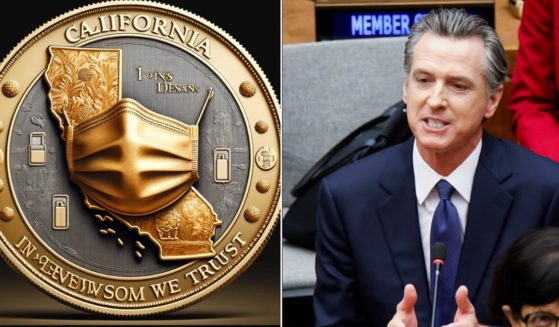Salt Water Added to Public Drinking Supply as Reservoir Levels Drop to Dangerous Low
A serious drought has left Uruguay with a drinking water crisis so severe, the government has taken the unprecedented step of supplementing its shrinking supply with salt water.
“Dwindling reserves of fresh water in the country’s main reservoir forced the public water company in late April to mix supplies with water from the River Plate estuary, resulting in unusually high levels of sodium and chlorides,” Reuters reported.
Now, residents of the South American country are complaining of the salty taste and the health implications of the move.
“Public anger over water shortages is building with street demonstrations planned in the capital,” according to the report.
Officials said the water shortage is Uruguay’s worst in 74 years.
The water supply was down to a few days’ supply in the capital city of Montevideo, the Washington Post reported on Monday.
The Post reported that the tap water now contains 421 milligrams per liter, which is 50 percent over the country’s previous limit and more than double the World Health Organization’s recommended level.
Chloride levels are high, too, at 686 milligrams per liter. That, too, is 50 percent higher than the country’s former limit, according to the Post.
The U.S. Embassy in Uruguay issued a countrywide alert in May, advising pregnant women or people with chronic kidney disease, cardiac failure or cirrhosis to avoid drinking water supplied by the national water company and to use bottled water to make infant formula.
Those taking medication for hypertension or diuretic medication were also advised to limit their intake of the water and to check their blood pressure often.
“For the population in general, it is not a health problem,” Public Health Minister Karina Rando said, according to the Post.
For those with medical issues such as kidney disease and hypertension, doctors in Montevideo have been writing prescriptions for bottled water, which can be redeemed at local stores.
Reuters said the crisis was precipitated by low rainfall and high temperatures. The Post chalked up the country’s water woes to global climate change.
The U.K. Telegraph attributed the crisis to a long list of resource-management missteps.
“We are facing a more severe drought than usual,” said Marcel Achkar, a researcher at the Institute of Ecology and Environment of the University of the Republic of Engineering Faculty of Science.
“But the crisis … is an accumulation of mismanagement: deforestation in springs, degradation of resources, agricultural intensification, buffer zones and degraded wetlands, over-consumption and unplanned consumption.”
Daniel Panario, director of the Institute of Ecology and Environmental Sciences, told the Telegraph that Uruguay’s booming timber and soybean industries have contributed to the water shortage.
“The invasion of soybeans has fundamentally affected the quality of water bodies,” he said.
“Afforestation also affects the quantity and quality of water, which drastically reduces the amount of water in rivers and reduces their self-purification capacity.”
Truth and Accuracy
We are committed to truth and accuracy in all of our journalism. Read our editorial standards.












